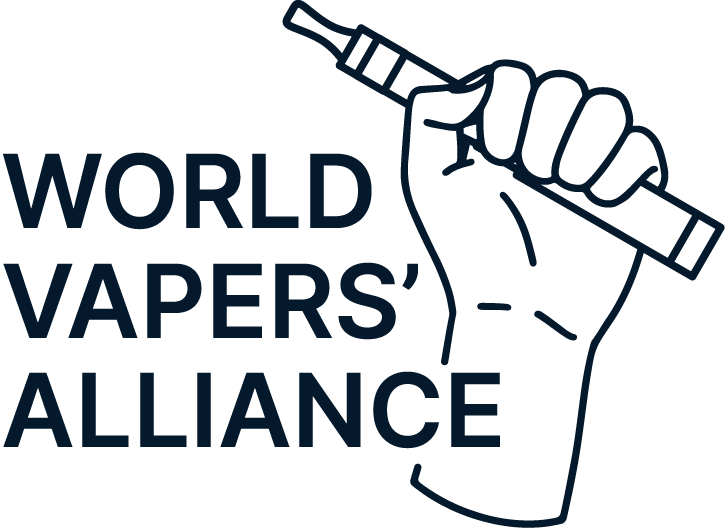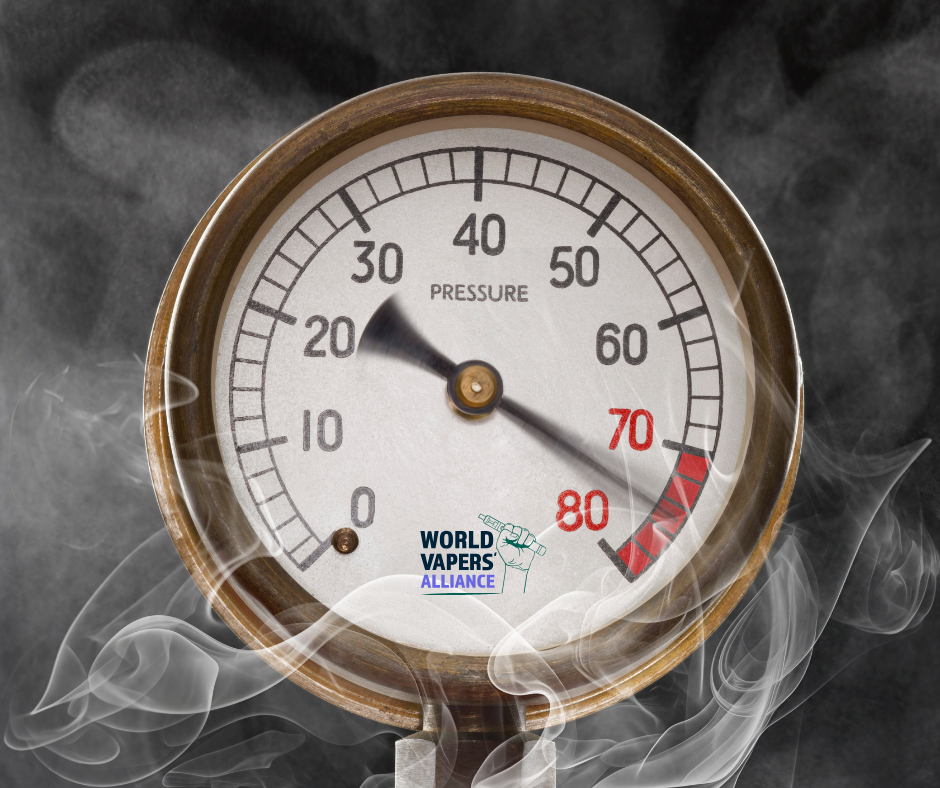In der vergangenen Woche gab es weltweit zahlreiche Gesetzesinitiativen zum Thema E-Zigaretten und Tabakprodukte. Von geplanten Verboten bis hin zu neuen Vorschriften für Produktverpackungen – die Politik geht verstärkt gegen das Dampfen vor. Dieser Blogbeitrag fasst die wichtigsten Entwicklungen zusammen, die sich in vielen Ländern erheblich auf Dampfer auswirken könnten. Wir werfen einen Blick auf die wichtigsten Punkte, die die regulatorischen Rahmenbedingungen für das Dampfen und die Schadensminderung beim Tabakkonsum prägen.
Der Vorsitzende des bulgarischen parlamentarischen Gesundheitsausschusses, Kostadin Angelov, hat einen Antrag vorgelegt. Rechnung Das Gesetz würde den Verkauf aller E-Zigarettenprodukte im Land verbieten. Das Verbot soll sowohl wiederverwendbare als auch Einwegprodukte betreffen, unabhängig davon, ob sie Nikotin enthalten. Es würde deren “Import, Handel, Verkauf, Lieferung und Vertrieb im Einzelhandel und online” umfassen. Der Gesetzentwurf soll Berichten zufolge die Unterstützung von Arbeits- und Sozialminister Borislaw Gutsanow sowie des GERB-Vorsitzenden und ehemaligen Ministerpräsidenten Bojko Borissow erhalten haben. Der Text wurde den zuständigen Ausschüssen zur Prüfung vorgelegt. Unabhängig davon haben Abgeordnete der zentristischen Oppositionskoalition PP-DB einen eigenen Gesetzentwurf eingebracht. Gesetzesvorlage eines einzelnen Abgeordneten Die Gesetzesvorlage sieht eine neue Definition für synthetische Nikotinprodukte und ein Verkaufsverbot vor. Sie wurde dem Ausschuss noch nicht zur Prüfung vorgelegt.
Litauen: Der Vorsitzende des Gesundheitsausschusses legt einen Gesetzentwurf zum Verbot von Einweg-E-Zigaretten vor. (10. Februar)
Lina Šukytė-Korsakė, Vorsitzende des Gesundheitsausschusses des Seimas (Einkammerparlament) und Mitglied der Partei „Morgenröte des Nemunas“ (Teil der Regierungskoalition), hat einen Gesetzesentwurf eingebracht. Gesetzesvorlage eines einzelnen Abgeordneten das würde das Inverkehrbringen von Einweg-E-Zigaretten ab dem 1. November 2025 verbieten. Das Gesundheitsministerium hatte zuvor erklärt, dass es ein Verbot des Verkaufs von Einweg-Vapes nicht in Erwägung ziehe, und hinzugefügt, dass “jede neue Kontrollmaßnahme eine Bewertung ihrer Wirksamkeit, ihrer Auswirkungen und potenziellen Risiken sowie gründliche Diskussionen erfordert” (LRT).
Frankreich: Nationalversammlung billigt Gesetz zum Verbot von Einweg-E-Zigaretten (4. Februar)
Die französische Nationalversammlung (Unterhaus) hat einstimmig beschlossen Rechnung Das Gesetz würde die Herstellung, Vermarktung, den Vertrieb und die Lieferung von Einweg-E-Zigaretten im Land verbieten. Es wird erwartet, dass der Senat (Oberhaus) den Gesetzentwurf in dieser Februarwoche prüft.
Die konservative Abgeordnete Dame Caroline Dinenage hat einen Gesetzesentwurf eingebracht. Änderung an die britische Regierung Tabak- und E-Zigarettengesetz Das Gesetz würde die Abgabe von Zigarettenfiltern aus Kunststoff verbieten. Darüber hinaus haben Abgeordnete der Democratic Unionist Party und der Conservative Party mehrere Änderungsanträge eingebracht, die das generationsübergreifende Verkaufsverbot aus dem Gesetzentwurf streichen und durch eine Anhebung des Mindestalters auf 21 Jahre ersetzen würden. Ein vorheriger Änderungsantrag der Opposition, der das generationsübergreifende Verkaufsverbot durch ein Mindestalter von 25 Jahren ersetzen sollte, wurde im Ausschuss abgelehnt. Alle Änderungsanträge werden im Unterhaus im Rahmen der Berichtsphase behandelt; ein Termin hierfür steht noch nicht fest.
Nepal: Richtlinie des Gesundheitsministeriums schreibt grafische Warnhinweise auf allen Tabakproduktverpackungen vor. (6. Februar)
Das nepalesische Ministerium für Gesundheit und Bevölkerung hat eine Richtlinie (Sekundärgesetzgebung) schreibt grafische Gesundheitswarnungen auf allen Tabakprodukten vor, die 1001 µg/m² der Vorder- und Rückseite der Verpackung bedecken – eine Erweiterung gegenüber den zuvor vorgeschriebenen 901 µg/m². Die Richtlinie soll Berichten zufolge 180 Tage nach ihrer Verabschiedung in Kraft treten; Medienberichten zufolge ist das Inkrafttreten für den 17. August 2025 geplant.
Hongkongs Gesundheitssekretär Lo Chung-mau gab bekannt, dass dem Legislativrat (dem Einkammerparlament) im April ein Gesetzentwurf mit zehn Maßnahmen zur Tabakkontrolle und unterschiedlichen Umsetzungszeiträumen vorgelegt wird. Zu den Maßnahmen gehört ein Verbot von Zigaretten ohne Mentholgeschmack, das bereits im nächsten Jahr in Kraft treten soll. Ein Verbot von Mentholzigaretten ist für einen späteren, noch nicht festgelegten Zeitpunkt geplant. Der Gesetzentwurf sieht außerdem ein vollständiges Verbot des Besitzes von E-Zigaretten in der Öffentlichkeit vor, das bis Mitte 2026 umgesetzt werden soll. Die Regierung hatte das Maßnahmenpaket bereits im Juni letzten Jahres angekündigt. Neben den genannten Maßnahmen umfasste es auch die Einführung von Warnhinweisen auf der Verpackung und standardisierten Verpackungen.
Südkorea: Unterausschuss lehnt Unterstützung für die Regulierung von synthetischem Nikotin ab, weitere Debatten vorbehalten (10. Februar)
Ein Unterausschuss des Planungs- und Finanzausschusses der südkoreanischen Nationalversammlung hat die Verabschiedung eines Gesetzentwurfs zur Ausweitung der Tabakdefinition abgelehnt. Tabakgesetz Die Regelung betrifft auch synthetische Nikotinprodukte. Konkret sollen Mitglieder des Wirtschafts- und Finanzausschusses die Ergebnisse einer (unveröffentlichten) Studie des koreanischen Ministeriums für Gesundheit und Soziales infrage gestellt haben, die angeblich behauptete, sowohl Tabak als auch synthetische Nikotinextrakte seien krebserregend und reproduktionstoxisch. Der Ausschuss kündigte weitere Beratungen zum Gesetzentwurf an; ein Termin steht noch nicht fest.
Südkorea: Gesundheitsministerium berät über Offenlegungspflichten für Inhaltsstoffe (6. Februar)
Das südkoreanische Gesundheitsministerium hat eine Konsultation eröffnet zu Verordnungsentwurf und ein Entwurf eines Dekrets das würde die Gesetz zur Offenlegung schädlicher Inhaltsstoffe von Tabakprodukten Ab 2026 sollen Hersteller und Importeure aller Tabak- und Nikotinprodukte verpflichtet werden, die Inhaltsstoffe ihrer Produkte dem Gesundheitsministerium offenzulegen. Ein politischer Ausschuss wird über den Umfang und die konkreten Mittel der Offenlegung entscheiden. Die Konsultation läuft bis zum 18. März; das Gesetz soll am 1. November 2025 in Kraft treten.
Die US-amerikanische Lebensmittel- und Arzneimittelbehörde (FDA) Vorgeschlagene Regelung Die Begrenzung des maximalen Nikotingehalts in Tabakerzeugnissen wird offiziell in die Liste der “langfristigen Maßnahmen” der FDA aufgenommen. beachten Die Veröffentlichung im Amtsblatt erfolgt am 12. Februar. Dies bedeutet, dass die Regelung nicht länger als prioritär eingestuft wird. Das Dokument bestätigt außerdem, dass die Tabakproduktnorm für Menthol in Zigaretten in den Bereich der langfristigen Maßnahmen verschoben wurde.
Ein demokratisches Mitglied der New Yorker Staatsversammlung (Unterhaus) hat einen Gesetzentwurf eingebracht. Gesetzesvorlage eines einzelnen Abgeordneten Das Gesetz definiert ein “Nikotinanalogon” als eine Substanz, “deren chemische Struktur der chemischen Struktur von Nikotin im Wesentlichen ähnelt oder die eine ähnliche oder stärkere Wirkung auf das zentrale Nervensystem hat als Nikotin”. Darüber hinaus verbietet das Gesetz den Verkauf von aromatisierten Nikotinanaloga. Nachdem es nun dem Finanzausschuss der Landesversammlung vorgelegt wurde, bedarf es noch der Zustimmung des Plenums der Landesversammlung, des Senats (Oberhaus) und des Gouverneurs, um in Kraft zu treten.







